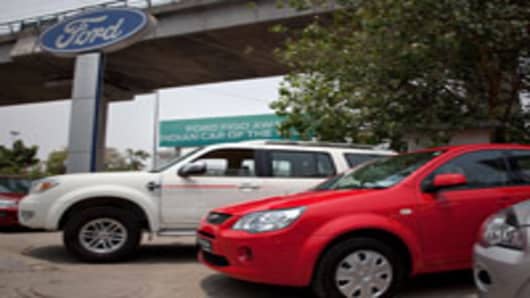General Motors said it sold 214,915 vehicles this year versus 199,432 in July 2010, including nearly 25,000 Cruzes. That could make it America's top-selling car for the second straight month.
Sales of the Chevrolet Equinox and GMC Terrain small crossovers rose 80 percent.
The auto industry has benefited from a broad economic recovery after suffering greatly during the recession. But GM's increase may not be the norm.
Automakers reported a 0.9 percent U.S. sales increase in July from a year earlier with a seasonally adjusted annualized rate of sales reaching 12.23 million vehicles.
Analysts predict that sales of new cars and light trucks in the U.S. rose slightly from a year earlier as few deals and economic worries kept car shoppers home.
VP of GM sales Don Johnson said unemployment, low consumer confidence and uncertainty over the federal debt ceiling scared some buyers off.
"We're seeing that the consumer confidence is pretty fragile right now because of everything that's happened in the past few months," Johnson said.
Meanwhile, Chrysler reported a sales increase by 20 percent in July of this year, versus the same time last year. The auto maker said it sold 112,026 vehicles this year compared to 93,313 vehicles last year. It was helped by new products such as the Jeep Grand Cherokee, which saw sales jump 76 percent.
July auto sales for Toyota fell 22.7 percent this year compared to the same time last year, as it continued to deal with parts shortages caused by Japan's earthquake. The Japanese automaker sold 130,802 vehicles in the U.S. last month, down from 169,224 a year earlier.
Auto sales started strong this year, but have slowed as the economy's growth faltered and Japan's earthquake caused shortages of popular models sold by Honda and Toyota.
Auto sakes for Honda fell 28 percent in July 2010. Yet, Nissan and Hyundai rose 3 percent and 10 percent, respectively.
Kia Motors said its July sales jumped 28.5 percent thanks to strong sales of the new Optima sedan. Sales of the Optima were more than triple last year's numbers.



